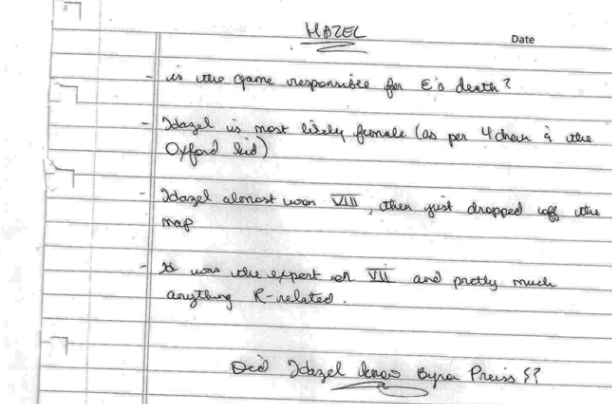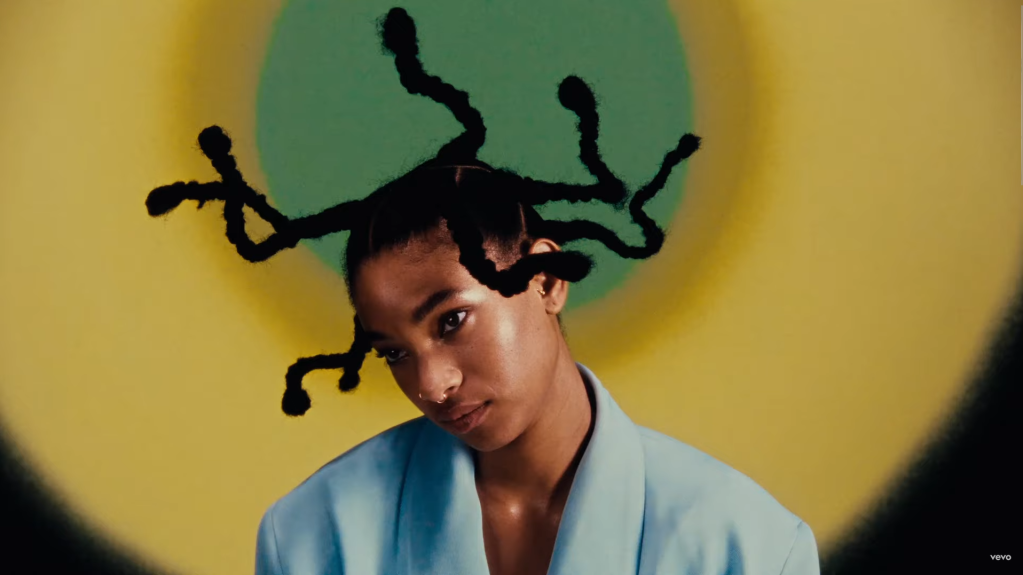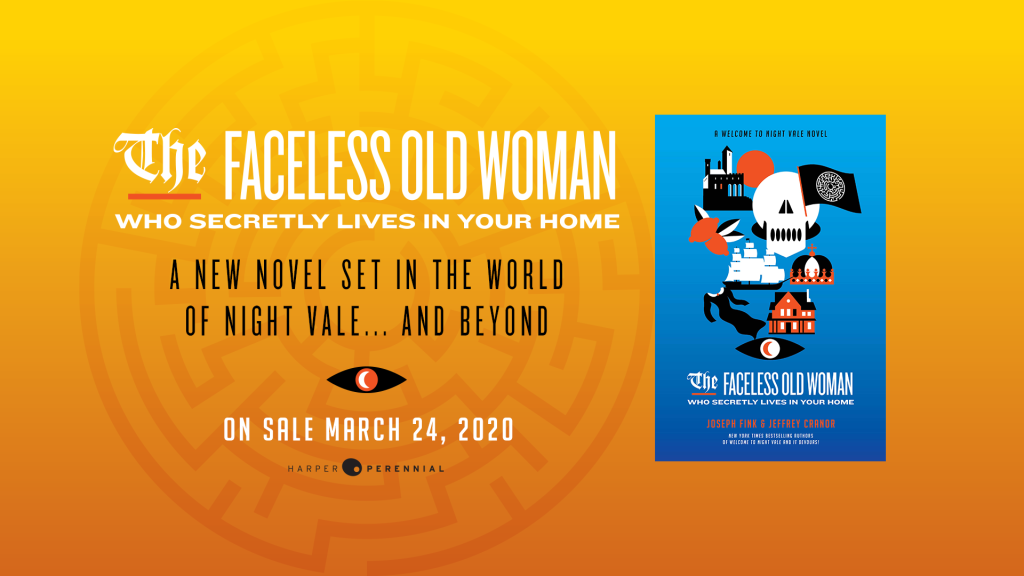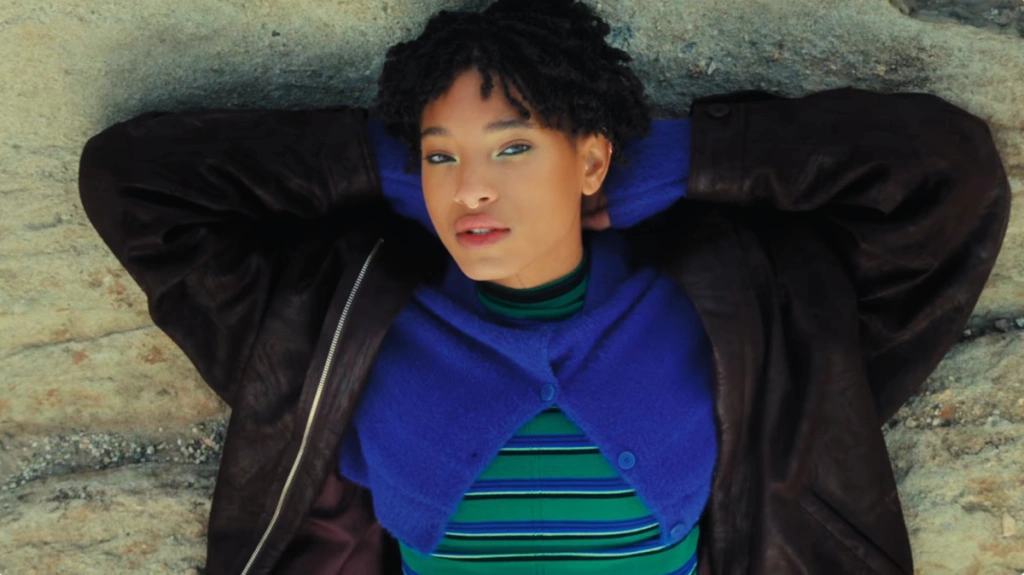Note: Please see the end of this review for more a follow-up on the series so far, as of 6/7/17. I have also received corrected information about the funding of the PNW Shows in the comments. TANIS does have a Patreon with over 1000 current patrons. The amount received by the Patreon is not published, but a user in the comments said it was about $7k before the amount stopped being public.
Rabbits is the new horror-thriller podcast from the Public Radio Alliance and Pacific Northwest Stories, the studios that produce the very popular shows The Black Tapes and TANIS. Rabbits seems like a sister as opposed to a more direct spinoff as TANIS was for The Black Tapes, but carries much of the same production style and theming as the other two shows. Rabbit‘s first episode, “101: Game On,” premiered on February 28th, 2017. This review is being written and posted after listening to episode 2, “102: Concernicus Jones,” which was released on March 14th, 2017.
The official description of Rabbits from the Public Radio Alliance website reads as such:
When Carly Parker’s friend Yumiko goes missing under very mysterious circumstances, Carly’s search for her friend leads her headfirst into a ancient mysterious game known only as Rabbits. Soon Carly begins to suspect that Rabbits is much more than just a game, and that the key to understanding Rabbits, might be the key to the survival of our species, and the Universe, as we know it.
The description is a bit lofty, but it’s in line with the expectations for the same studio that has brought us Rabbits‘s sister shows. I will be direct here: I do not like The Black Tapes or TANIS. If anything, I actually can’t stand either of them. Going into Rabbits, I was obviously pessimistic. I was expecting all of the trademark Pacific Northwest Stories writing, production, and acting flaws that caused me to abandon their other projects. I found, though, that I was pleasantly surprised by this show so far.
The acting in this show impressed me immediately. With the exception of a few strange quirks (why does she pronounce “Takata” like “Takatta?”), the actress playing Carly Parker is thoroughly believable in her role as a concerned friend and a journalist. She sounds scripted, but given the show is meant to replicate scripted nonfiction podcasts, this was a non-issue. The supporting characters, especially “Jones,” all carry themselves well, even if the audience hasn’t had much exposure to them yet. This isn’t something I’m surprised by; the acting talent in PNW shows has always been high-caliber, especially in their early episodes.
The story itself is gripping in the same way that early episodes of The Black Tapes were. The conceit of the podcast reminds me of ’97 Fincher film The Game, which should come at no surprise given the film’s title. I wouldn’t be surprised if it were at least in part an inspiration for this project. The reference to Polybius rooted the story in a more present context, elegantly giving a reference to those of us with an interest in “creepy pasta” without isolating those who haven’t necessarily ventured into the genre.

The story lends itself well to fan interaction and hypothesizing, two aspects which help drive the very dedicated fanbase of the other PNW podcasts. PNW podcasts often feel almost gamified in themselves; the listener can choose to put together clues from show notes, interact with other fans, and theorize, with the reward being a theory proven canonical. Translating that feeling into the actual plot of a show, especially while incorporating aspects of the game itself into what fans can dissect, is a brilliant concept. From the first episode, when Carly discussed the rules of Rabbits, the audience already feels complicit and uncomfortably vulnerable. Take, for instance, the game mechanic of the Wardens, as discussed in the rules of Rabbits:
Pray you never meet a Warden’s eyes, or with such takers fraternize, for once they see you, recognize: your game is up. Your world, it dies.
[ . . .]
You’ll see the Wardens only once. You’ll see them if you tell anyone about the game. You’ll see them if you betray the spirit of the game. You’ll see the Wardens only once.
A fixture of the genre is making the audience feel as though the knowledge they have been given is forbidden, and the combination of giving the audience the information, sharing documents that look realistic, and producing the podcast to sound non-fictional blur the listener’s lines between fiction and reality. The suspense is heightened and made more tangible for the listener; it’s easier to be afraid for your own well-being when the show engages you in multiple ways (the podcast itself, the community, the clues) and is immersive enough to make you forget, even for a short while, that it’s fiction.

A document from the show notes of Episode 1, “101 – Game On”
This isn’t to say that the suspension of disbelief is effortless with Rabbits. PNW podcasts have a tendency of having large-scale, genre-appropriate realism while missing very basic details of maintaining realism. The most frustrating beat this show misses consistently is trying to model itself off of Serial, like The Black Tapes does, while falling much more realistically into the model of Millennial. The audience is asked to buy into the idea that Rabbits is a piece of journalism, conveyed via semi-lax reporting, instead of a piece of journaling with an overarching plot. This can be seen in moments where, in any journalistic broadcast, irrelevant personal details absolutely would have been edited out:
CARLY PARKER: Harper and Miko actually dated each others’ brothers for a long time, which was weird–but that’s a whole other podcast. [. . .] When was the last time you saw Miko?
HARPER BILLINGS: I’m glad you’re doing another radio story. You were a lot happier when you were doing radio.
CARLY PARKER: So . . . Yumiko?
HARPER BILLINGS: I think it was a Saturday, because there was that–oh, no, wait, we were gonna watch Game of Thrones.
The middle section of the segment could have easily been edited out were this a nonfiction podcast, as the audience is meant to believe it is. The audio had clean separation. Removing it wouldn’t have been difficult at all, and the over-personalization is flagrantly unprofessional in a journalistic setting. The intimate personal details and casual moments here are diametrically dissonant with the serious, informative acting and production. In true nonfiction, either the professionalism or the casualness would be edited out–and they certainly wouldn’t be added to a show’s intro, as with the moment where the sex worker asks Carly if they’re still going to have sex. It isn’t that the show should be made light and sentimental; it’s that the show needs to lean into its humanity and feel more loose, but it keeps insisting on being journalistic nonfiction instead of creative nonfiction.
The other most pressing flaw in the show’s realism is its use of very tired and forced tropes in its characters. Yumiko is the obsessive, a trope that is admittedly necessary in the horror genre, but she’s also the Best Friend With a Secret Life, and perhaps even the Sex Worker With a Heart of Gold–an Audrey Horne who, unfortunately, lacks any believable characterization this early in the show and therefore feels very manufactured. Yumiko’s family very explicitly does not follow the Strict Asian Parents stereotype, but they do still go insist on seeing a fortune teller. Carly’s brother is a gamer who literally lived in their parents’ basement before killing himself. Carly and her brother comes from a relatable working-class family, but somehow they were still able to purchase a standing Centipede machine. The characters also all seem to have cloyingly unique and quirky names–even “Carly Parker” has heavy enough assonance to make it notable.
In regards to production, Rabbits has the same clean, professional sound expected from a PNW/PRA production. The show seems to have the sleek craftsmanship of a production team that is very moneyed and experienced in a medium of mostly self-funded, self-taught novices, which immediately makes me more critical. Where The Black Tapes and TANIS ultimately fail in their production, though, Rabbits seems to flourish. It still has the iconic PNW bed music that somehow manages to be both boring and overly dramatic. It still has what I’m going to call “The Whoosh,” the bass-heavy, windy-sounding rumble horror podcast Inception Braaam equivalent, accenting every suspenseful plot detail.
equivalent, accenting every suspenseful plot detail.
Rabbits, though, has distinguished itself from the other PNW shows in its ability for subtlety. Instances of The Whoosh seem much less often than those in its sister podcasts, and the other sound effects used to accent dialogue are elegant and minimal. There’s a moment where The Black Tapes is directly referenced, and the first line of the theme song breezes through the background in a way that’s surprisingly restrained. At one point, Carly mentions that Yumiko was looking at birds, and the sound effect of birds flapping their wings plays. Again, this could have been a tacky, boring use of an unnecessary sound effect, but instead it’s added in a way that adds to the ambiance instead of being a distraction.
For now, I remain pleasantly surprised by these early episodes of Rabbits. I believe in its production team to continue being graceful, immersive, and intriguing as it moves progresses, even with the expectation that it will go down the same road as The Black Tapes: lasting too long and inevitably becoming clumsy and monotonous. Hopefully I’ll be proven wrong or, at least, hopefully we’ll have a phenomenal addition to the horror podcast genre until then.
Episodes of Rabbits are being released on Tuesdays biweekly, with the next episode slated for 3/28/17. You can find more information, as well as listen to episodes 1 and 2 of Rabbits, on rabbitspodcast.com.
Follow-up, 5/15/17.
Well, nobody can say I’m not an optimist.
In the time since this review was posted, we’ve hit six episodes, and the show has hit two strikes out of three until I give up entirely. All of the fears I’ve had about the PNW Stories mistakes–the bad writing, sloppy editing, hammy acting–have manifested in this show.
I’m going to write a proper follow-up if/when I stop listening to the show. For now, because this post has routinely been getting views, I want to make sure everyone has been updated. The first few episodes were solid. The rest? Extremely disappointing.
Follow-up, 5/15/17.
We’ve officially hit three strikes. This means that I have unsubscribed from the podcast entirely.
I plan on writing a full post on why PNW Stories always, without fail, disappoints me, and why it frustrates me so much when they do. At a certain point, this isn’t just about The Black Tapes, Rabbits, or TANIS–it’s about problems in the industry itself. A lot of my complaints can be found in my S-Town review; it all comes back to being exhausted with how much mediocre shows with lots of press are praised.
Follow-up, 6/7/17.
It’s been a few weeks since I’ve stopped listening to Rabbits, and this review is still one of the most popular on my blog. It seems it’s time to go a little more in-depth for why I stopped listening.
Since audio dramas have started gaining steam, PNW Stories has always been on the forefront of serialized fiction podcasts in the press. The Black Tapes is the first fiction podcast I can think of that earned real fame outside of the Night Vale Presents network. I know very little about the PNW Stories brand, other than that on their site, they say:
As most of you have probably already discovered, our former host removed all of our past work from the internet. We promise to make new and exciting work for you, the best audience in the universe, and because we now own 100% of the Pacific Northwest Stories brand, we’re going to be with you for a long time.
I do know, too, that shows like these don’t run on nothing. These shows have glossy (if not very good) production and talent (if not . . . very good) that require money to run. I have found no methods for fans to support the shows, which even the Night Vale Presents shows need. All of this leads me to the assumptions that the PNW Stories shows are one of the more moneyed and reported-on podcasts, and yet they still fail to even come close to the quality of indie podcasts. On just over $1,300 a month plus some sponsorship, The Bright Sessions makes shows that have beautiful production, incredible acting, and overall attention to detail that I have never heard in a PNW Stories production. On just over $2,200 a month plus sponsorship, Wolf 359 is one of the most moving pieces of media I’ve ever engaged with.
This isn’t to say that money is the only thing to consider when discussing the quality of a podcast. This is to say that when a podcast is in such a healthy position that they do not need to ask for fan contribution, I’m going to hold them to a much higher standard across the board.
This is why the PNW Stories shows are such a massive disappointment. On their own, the shows are fine. The bad writing and bad acting are excusable. The bad production might not even be noticed by most fans. When compared to podcasts that are so much smaller, though, these shows become absolutely laughable. Each flaw becomes so glaringly obvious and amateur that the shows fall apart.
It doesn’t help that the flaws in these shows get worse and worse with each episode. Rabbits started out so promising, but by episode 4 or 5 it had already fallen down the . . . rabbit hole . . . of so many PNW trappings. The acting became both bricklike and over-the top. The story gave up all of its subtlety, immediately throwing the protagonist into ridiculous action scenes instead of letting the mystery unfold. The pacing completely broke my suspension of disbelief: how am I, the listener, supposed to feel suspense or concern in an intense plot moment when the host stops her narration to talk about Nature Box?
The worst offender, of course, was the production. Like with all PNW Stories shows, the producers of Rabbits seem to only know one way to inject their dull acting and writing with suspense, and that’s what I call the Black Tapes Whoosh. The Black Tapes Whoosh is the rumbling, bassy, whoosh noise that punctuates about one in five sentences of a PNW Stories productions in order to make it seem intense. The frequency with which it’s used doesn’t make anything seem interesting. It makes it seem hilarious. The Whoosh has become almost a punchline when listening, like a bad SNL parody sketch of a genuine piece of horror audio.
Rabbits was so promising. I still mourn its loss. I really believed that at this point, PNW Stories had done enough work in the industry to know what they’re doing wrong. Apparently, though, this is what money and press gets a studio: complacency for their mediocre-at-best content.








Leave a comment